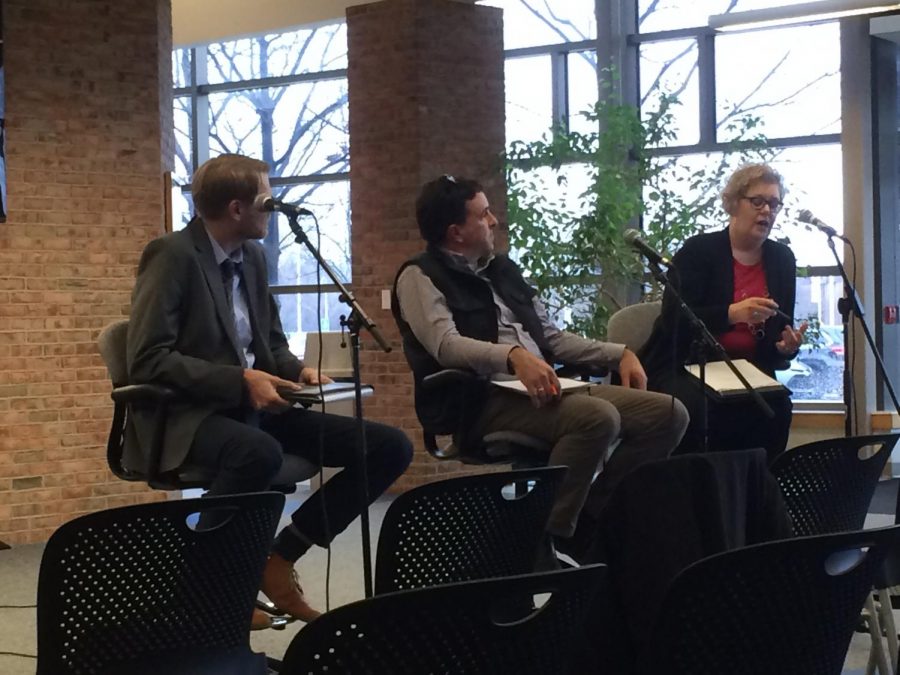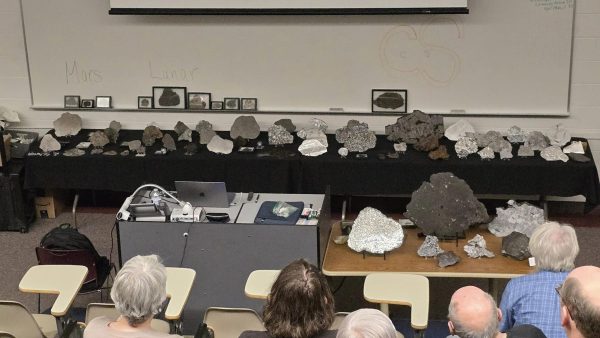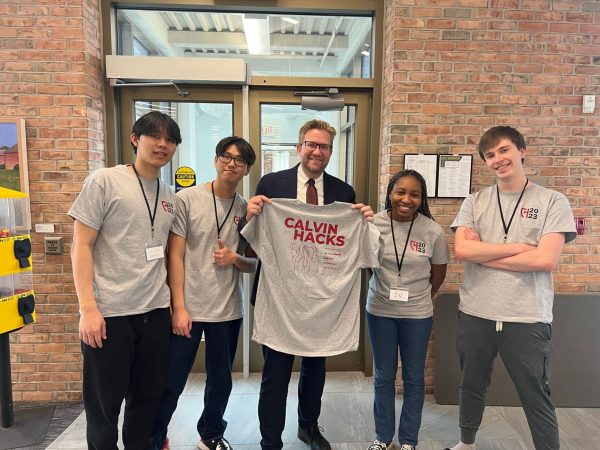Is the Green New Deal a good deal?
Representative Alexandria Ocasio-Cortez’s proposed “Green New Deal,” a package designed to make America more sustainable, has generated a flurry of controversy. Last Thursday an interdisciplinary panel of Calvin professors discussed the merits, drawbacks and questions surrounding the Green New Deal. The panelists consisted of professors Jamie Skillen, Michael Peltz and Becky Haney, representing the geology, geography and environmental science, political science, and economics departments, respectively.
Haney explained the aim of the subsidies offered by the Green New Deal to the renewable energy sector: to even the playing field with fossil fuels. “Renewable energy doesn’t have a leg to stand on until it can get to that level,” said Haney, referring to the large amount of government subsidies given to the fossil fuel industry.
Skillen expressed skepticism at the soundness of the Green New Deal as a set of policies. “What I see this as is an aspirational vision,” he said. He shared his theory of why the Green New Deal is so liberal: to strike a balance with conservative rhetoric on climate change in hopes of shifting the conversation to the center.
Pelz talked about the Green New Deal’s difficult political road ahead. “Good policy and good politics rarely are the same,” he said, and predicted that a carbon tax might be more politically feasible. Peltz also talked about the political controversy surrounding elements of the Green New Deal that its critics say are politically motivated.
“If the Green New Deal didn’t have what people call the socialist elements people would be more convinced,” he said.
Around 35 people attended the panel.







